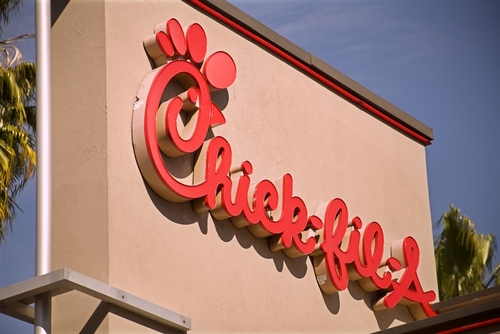
Chick-Fil-A Revises Antibiotic-Free Chicken Policy
Fast food giant Chick-fil-A has announced a major change to its supply chain policy for sourcing chicken products. In the coming months, the chicken fast food chain will move from its “No Antibiotics Ever” (NAE) standard to a “No Antibiotics Important To Human Medicine” (NAIHM) policy.
The company’s NAE policy was established in 2014 as a substantial part of its brand identity. At the time, the company pledged to serve entirely antibiotic-free chicken at all outlets no later than 2019. Under the new NAIHM policy, the use of animal antibiotics will be allowed only when necessary for the health of the animal, excluding those critical for human medicine.
Hormone-laden chicken is on the menu:
Chick-fil-A Is Making a Big Change to its Chicken Due to Supply Reasons via @WestJournalism https://t.co/dylggTEWbO
— Truth In Wisdom (@truth_in_wisdom) March 25, 2024
This announcement has sparked a mixed reaction among customers and social media users. Some, including conservative voices and long-time fans of the chain, have expressed disappointment and are calling for a boycott. Due to this policy shift, Conservative podcast host Alex Clark urged his listeners to stop patronizing Chick-fil-A. Yet, others defend the company’s decision, arguing it allows for healthier, more ethically raised chickens.
The decision mirrors recent actions by other major players in the food industry. For instance, Tyson Foods and Panera Bread have also adjusted their antibiotic policies, indicating a broader industry trend influenced by supply chain challenges.
Chick-fil-A’s move is a practical response to unavoidable supply issues rather than a complete departure from the company’s commitment to quality and ethical sourcing. It reflects a nuanced approach to antibiotic use, distinguishing between antibiotics necessary for human health and those not, rather than an all-or-nothing stance. This could be an attempt to balance public health concerns with the realities of animal welfare and supply chain management.
Moreover, Chick-fil-A’s shift indicates a larger industry trend where flexibility and adaptability are becoming increasingly crucial. As supply chains face unprecedented strains due to global events and market dynamics, more companies may need to reconsider their operational and sourcing strategies. The critical question for Chick-fil-A and similar brands is how they communicate these changes to their customers. Transparency and honesty will be vital in maintaining trust and loyalty during times of change.
Finally, the conservative backlash highlights a broader political and cultural divide in consumer behavior. Companies, especially those like Chick-fil-A with a significant conservative customer base, must navigate these waters carefully. They must balance business decisions with maintaining their brand identity and customer loyalty. As the situation evolves, it will be interesting to see how Chick-fil-A and its peers continue to respond to these complex challenges.